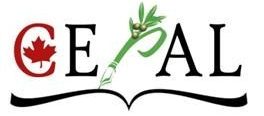Why Palestinians in Lebanon?
Over 60% of Palestinian families in Lebanon are living below the UN-established poverty line. Classified as foreigners in Lebanon, they are prohibited from employment in more than 70 trades and professions, denied most social and civil rights and have limited access to health and educational services. Having lived through more than 70 years of tumultuous exile since the creation of the state of Israel, the Palestinian refugee population in Lebanon now has the greatest percentage of hardship cases (as defined by the United Nations Relief and Works Agency) of any Palestinian community, excluding Gaza. And, over the past decade, the Palestinian refugee camps of Lebanon have seen their population numbers swell, as they received thousands of Palestinian and Syrian refugees fleeing Syria.
Twenty-five years ago, several Canadians working in Lebanon recognized the dire situation facing the Palestinians in Lebanon and approached a number of local not-for-profit non-governmental organizations to discuss potential collaborations in support of their efforts. The organizations expressed a particular need for educational programming for children, since a high percentage of their students were not able to complete school. These organizations noted that a significant challenge to the successful completion of Palestinian students’ education was the fact that they must follow the Lebanese curriculum, which requires them to pass a national grade 9 exam (the Brevet) that places a heavy emphasis on English language proficiency. In direct response to their request, CEPAL was founded and began offering English language instruction to children and youth in several camps in Lebanon.
CEPAL’s programs grew to include English, French and computer classes, in formal and informal instruction. From an initial partnership with three local organizations, our work expanded to partnerships with ten NGOs and with UNRWA – the UN agency responsible for providing basic health, social and educational services for Palestinian refugees throughout the Middle East. In addition to the two Beirut area camps – Bourj el-Barajneh and Shatila—where CEPAL first started working, we began to work in the Ba’albek area camp of Wavel and the unofficial settlement of Talabaya.
A Challenging and Changing Context in Lebanon
Unfortunately, since the 2006 war in Lebanon, CEPAL has increasingly had to contend with an unstable political climate in Lebanon. This worsened after the 2007 siege and partial destruction of Nahr el-Bared camp, as well as the heightened securitization of many of the areas where the camps are located, because of the Syrian civil war and the recent spate of bombings in Lebanon. The massive influx of refugees from Syria has further altered the context in which CEPAL traditionally conducted its work, placing a heavy burden on our local partners.
CEPAL’s programs were significantly reduced because of these difficulties, with no volunteers having been sent to the camps for almost a decade. Feedback from our partners, however, continues to emphasize a need for educational support, particularly at the current time when the influx of Palestinian and Syrians refugees from Syria is adding strain to an already overstressed educational system.
see_Rebuilding Programs_How Can I Contribute?
